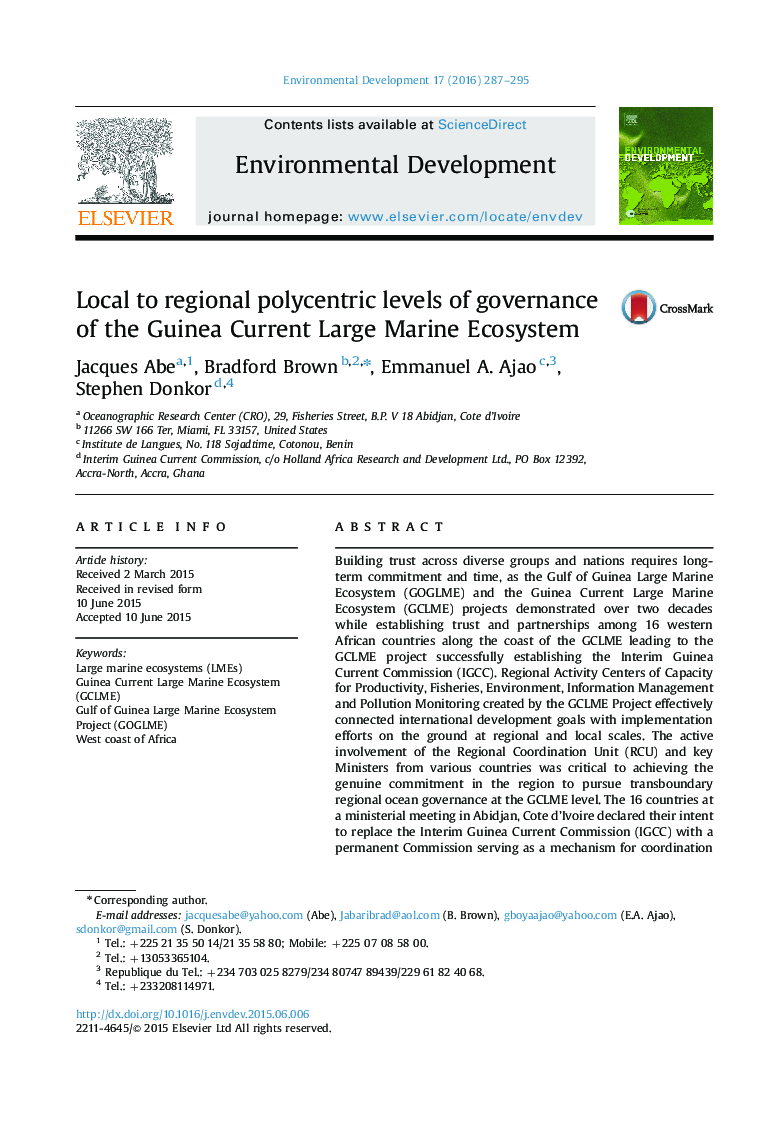| Article ID | Journal | Published Year | Pages | File Type |
|---|---|---|---|---|
| 4391394 | Environmental Development | 2016 | 9 Pages |
•The Guinea Current Large Marine Ecosystem Project (GCLME) shows strong country ownership of the goals of the project.•Building strong support of continuing LME governance in the GCLME resulted in part by having a steering committee with real authority.•Building strong support for continuing LME governance in the GCLME resulted in part from hands on efforts by the Regional Coordination Unit with contact at all levels and sectors.•A “middle out” building of networks and support systems amongst was successful in reaching both upward to policy makers and outward to stakeholders to build support for governance.
Building trust across diverse groups and nations requires long-term commitment and time, as the Gulf of Guinea Large Marine Ecosystem (GOGLME) and the Guinea Current Large Marine Ecosystem (GCLME) projects demonstrated over two decades while establishing trust and partnerships among 16 western African countries along the coast of the GCLME leading to the GCLME project successfully establishing the Interim Guinea Current Commission (IGCC). Regional Activity Centers of Capacity for Productivity, Fisheries, Environment, Information Management and Pollution Monitoring created by the GCLME Project effectively connected international development goals with implementation efforts on the ground at regional and local scales. The active involvement of the Regional Coordination Unit (RCU) and key Ministers from various countries was critical to achieving the genuine commitment in the region to pursue transboundary regional ocean governance at the GCLME level. The 16 countries at a ministerial meeting in Abidjan, Cote d’Ivoire declared their intent to replace the Interim Guinea Current Commission (IGCC) with a permanent Commission serving as a mechanism for coordination and agreement on resource use among these countries embracing the LME modules from local to regional polycentric levels of governance, consistent with the benefits of an ecosystem-based approach to assessment and management of GCLME goods and services.
